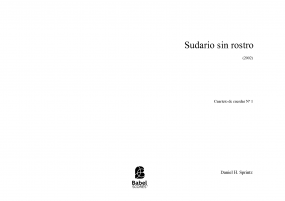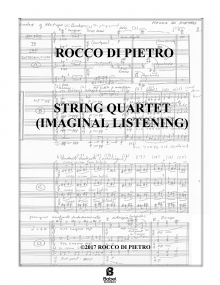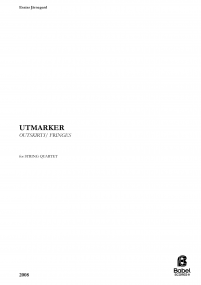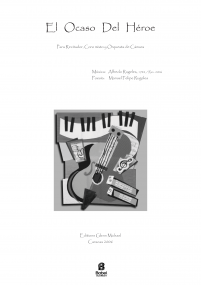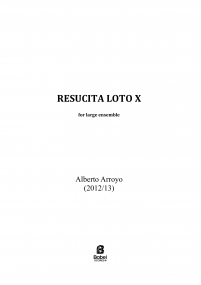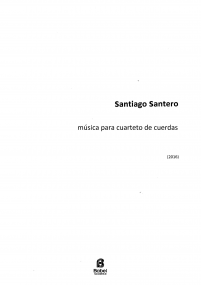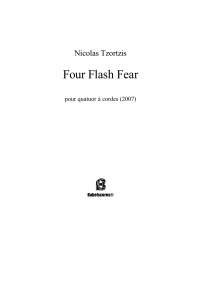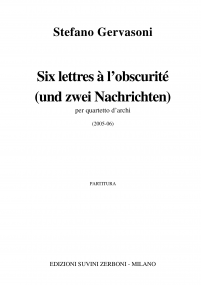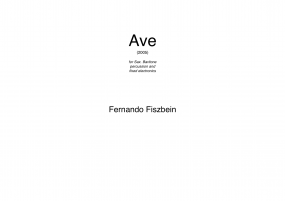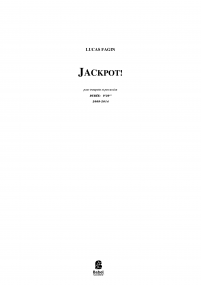Recherche avancée
String Quartet No.3
Vln.1, Vln.2, Vla., Cello.
I. Dis-continuum.
II. Grain-Carré.
III. Direct-Dimensional.
I. Dis-continuum.
II. Grain-Carré.
III. Direct-Dimensional.
14,00 €
Version numérique (+0,00 €) à télécharger
Version papier (+16,20 € impression et livraison ). Colissimo7-14 days aprox.
Chez BabelScores, quand vous achetez une partition, vous pouvez ensuite contacter directement le compositeur ici même !
Caractéristiques
Region
Latinoamérica
Estimated Duration
31 - 40min
Date
2015
ISMN : 979-0-2325-6303-9
Vidéos
Notes sur cette pièce String Quartet Nr. 3 in 3 movements (10 min. each) by Salvador Torré
In the String Quartet it has been practiced throughout the history of music the aspect of Laboratory of Forms, laboratory of Writings, of Methods, of Styles, of Compositional Substrates etc. using old methods arises from the canonical imitative forms counterpoint or harmony, all combined with the today languages, the infinity of music we hear today from which, for me the Rock music is very important, as well as electroacoustic practices are evident in this quartet, mixtures and super-positions of elements in a space time either compacted or expanded, micro-imitations are now a days called “delays” or “echoes”. Different distortions caused by the ways of attacking, rub, pull hitting different parts of the instrument etc. All this adding an important element today: Improvisation, the interpreter then is enrolled in a state of freedom, but because we are speaking on classical music, this classical style provides the concept of structure, it brings a certain rigorous form. This generates an open-closed form, hence the title of this quartet "Dis-continuum" in a certain way the “continuous” is due to the improvisation and the “discontinuous” is associated to the form or structure proposed in the score.
Ajouter à une playlist
- Identifiez-vous pour créer une liste
In the String Quartet it has been practiced throughout the history of music the aspect of Laboratory of Forms, laboratory of Writings, of Methods, of Styles, of Compositional Substrates etc. using old methods arises from the canonical imitative forms counterpoint or harmony, all combined with the today languages, the infinity of music we hear today from which, for me the Rock music is very important, as well as electroacoustic practices are evident in this quartet, mixtures and super-positions of elements in a space time either compacted or expanded, micro-imitations are now a days called “delays” or “echoes”. Different distortions caused by the ways of attacking, rub, pull hitting different parts of the instrument etc. All this adding an important element today: Improvisation, the interpreter then is enrolled in a state of freedom, but because we are speaking on classical music, this classical style provides the concept of structure, it brings a certain rigorous form. This generates an open-closed form, hence the title of this quartet "Dis-continuum" in a certain way the “continuous” is due to the improvisation and the “discontinuous” is associated to the form or structure proposed in the score.
Instrumentation
Violin (2)|Viola|Cello
Score Details
Format - Undefined
Pages - 38
Pages - 38





